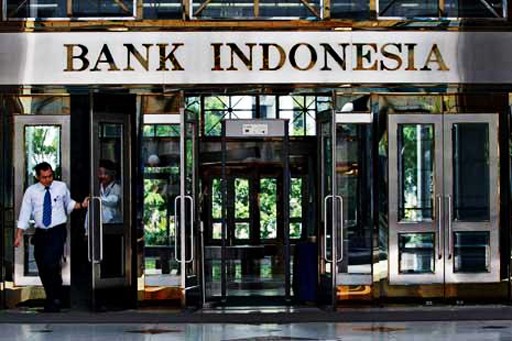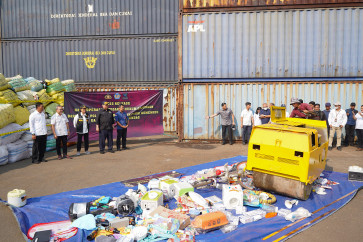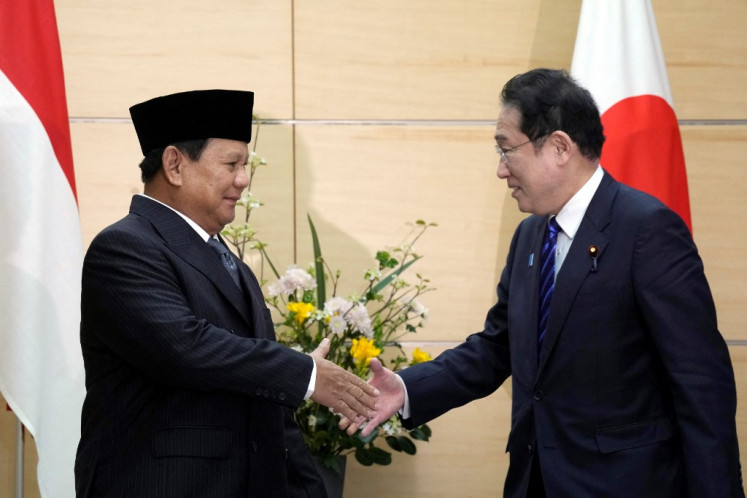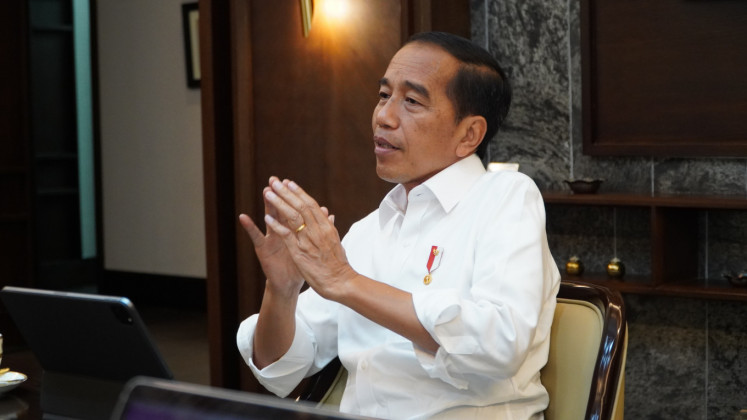Preventing, handling financial system crises
Recalling the Bank Century case in 2008, there is a controversy regarding the concept of systemically important banks. This act is one of attempts to reduce the controversy of the concept by determining such banks regularly once every six months.
Change Size
 There are three key institutions that now play an important role in maintaining the stability of the financial system, namely BI, the OJK and the Indonesia Deposit Insurance Corporation ( LPS ). (Kompas.com/-)
There are three key institutions that now play an important role in maintaining the stability of the financial system, namely BI, the OJK and the Indonesia Deposit Insurance Corporation ( LPS ). (Kompas.com/-)
I
span style="color: rgba(0, 0, 0, 0.8); font-family: Acta-Book; font-size: 17px; line-height: 24.2857px;">It has been more than two years since Bank Indonesia ( BI ) handed over microprudential supervision to the Financial Services Authority ( OJK ) in early 2014. This transfer has structurally changed the financial sector in Indonesia. There are three key institutions that now play an important role in maintaining the stability of the financial system, namely BI, the OJK and the Indonesia Deposit Insurance Corporation ( LPS ).
Interaction between macroprudential policies represented by BI and microprudential policy represented by the OJK has been continuously developed in order to establish a good collaboration. Furthermore, the LPS has played an important role in insuring depositor’s funds and actively participates in maintaining the stability of the financial system.
However, the role of each authority is not legally clear, especially in the stage of crisis. The Bank Century case has traumatized decisionmakers in taking action when they deal with a crisis condition.
On April 15, President Joko “Jokowi” Widodo ratified Law No. 9 2016 on prevention and resolution of financial system crises. This act provides a strong legal framework and rules of game for the key institutions in preventing and handling financial system crisis. This act mandates the formation of the Financial System Stability Committee ( KSSK ) in order to prevent and to deal with financial system crises.
This committee comprises the finance minister as coordinator and the governor of BI, the chair of the OJK and the chair of the LPS as members. In this committee the LPS chair does not have a voting right in order to prevent conflict of interest. One of the key roles of the KSSK is to assess the stability of the financial system and to provide recommendations to the president in determining the status of the Indonesian financial system, whether in crisis or normal conditions.
Recalling the Bank Century case in 2008, there is a controversy regarding the concept of systemically important banks. This act is one of attempts to reduce the controversy of the concept by determining such banks regularly once every six months.
As a consequence of being classified as a systemically important bank, each bank has to provide additional regulatory capital and liquidity requirements.
As such, if the financial system faces a crisis, there are no debates as to whether a bank can be classified as a systemically important bank or not because the list already exists.
In case the systemically important bank deals with a liquidity problem, it can propose a short-term liquidity loan from the central bank. A short-term liquidity loan proposal has to come with liquid and high-quality collateral. If the bank does not have sufficient collateral, it can use its credit as the collateral for the central bank’s short-term loan.
In case the systematically important bank deals with a solvability problem, the OJK collaborates with the LPS for preparing a treatment for the bank’s solvability problem. If the bank’s problem worsens, the KSSK will determine a resolution for the bank. The KSSK could advise the LPS to take over the systemically important bank with the solvability problem.
The treatment of the bank’s solvability problem taken by LPS may include the purchase of assets and acquisition, in which the systemically important bank’s assets and liabilities are sold to other banks. The LPS may also establish a bridge bank for purchasing the assets and liabilities of the systemically important bank.
Subsequently, the LPS asks the OJK to revoke the operating license of the bank, followed by the bank liquidation process.
It is important to note that all of the costs for treatment of the systemically important bank with the solvability problem are borne by the LPS. In case the liquidation process ends up with a negative balance, it will be accounted as the LPS’ loss.
Conversely, if it ends up with a positive balance, it will be accounted as the LPS’ profit. Therefore, the issue of state losses such as in the Bank Century case can be eliminated. The cost for the liquidation process is from the LPS’ funds, which originate from regularly premium payments from all banks in the industry.
This law also ensures immunity and legal protection for the decisionmakers in the prevention and handling of a financial system crisis. Unless there is an abuse of authority, neither members of the KSSK, nor secretariat members of the KSSK, nor employees of the Finance Ministry, BI, the OJK or the LPS can be prosecuted, either in civil or criminal actions. In case they face lawsuits related to their duties, they will receive legal assistance from the institution they represent, or that assigned them. This is an incentive for policymakers to take bold decisions in crisis prevention and resolution.
Indeed, this law should be greatly welcomed. However there is still room for improvement. The methodology in determining a systemically important bank, the mechanism in short-term loans, the liquidation process and the good governance of the process of prevention and handling of the financial crisis still should be continuously monitored by the public.
***
The writer is an economist at the department of macroprudential policy, Bank Indonesia. The views expressed are his own.
---------------
We are looking for information, opinions, and in-depth analysis from experts or scholars in a variety of fields. We choose articles based on facts or opinions about general news, as well as quality analysis and commentary about Indonesia or international events. Send your piece to community@jakpost.com.








